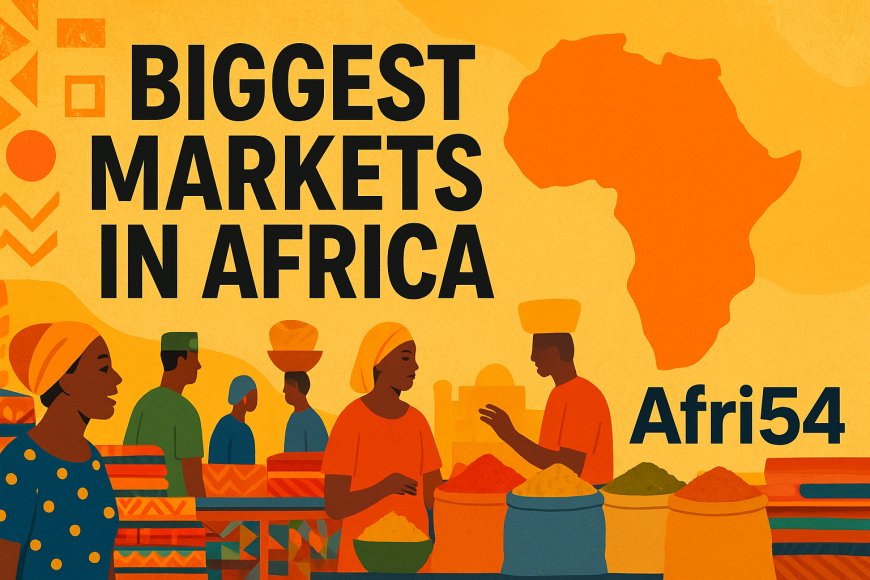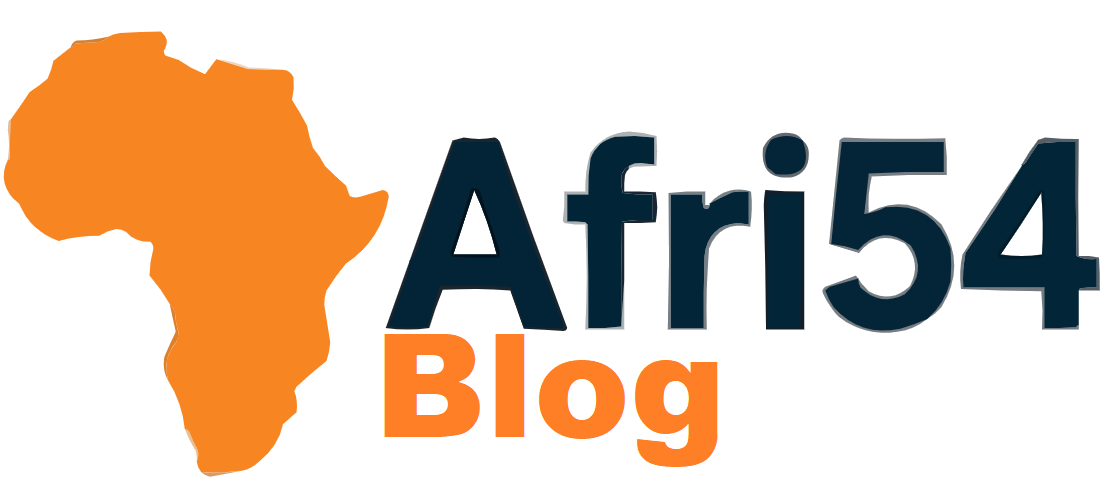The 10 Biggest Markets in Africa: A Hub of Trade, Culture, and Daily Life
African markets are more than just trading centers; they are cultural treasures that power the continent’s economy. From Nigeria’s Onitsha Market with billions in annual trade to Morocco’s vibrant Marrakech souks, each market reflects the diversity, energy, and resilience of African commerce.

Africa is home to some of the largest and busiest markets in the world, where millions of dollars exchange hands daily. These markets are not only economic powerhouses but also cultural melting pots that showcase the vibrancy of African commerce, tradition, and lifestyle. Let’s explore the 10 biggest markets across the continent, what they sell, their locations, and the scale of transactions.
1. Onitsha Main Market – Nigeria
-
Location: Anambra State, Nigeria
-
Products: Electronics, clothing, household goods, food items, motor parts.
-
Daily Transactions: Estimated over $20 million.
-
Highlight: Known as one of the largest markets in West Africa, Onitsha attracts traders from across the continent.
2. Kumasi Central Market (Kejetia) – Ghana
-
Location: Kumasi, Ashanti Region, Ghana
-
Products: Textiles, Kente fabrics, jewelry, spices, food, and handicrafts.
-
Daily Transactions: Around $10–12 million.
-
Highlight: A cultural hub famous for Ghanaian traditional fabrics and gold jewelry.
3. Ariaria International Market – Nigeria
-
Location: Aba, Abia State, Nigeria
-
Products: Shoes, leather goods, clothing, textiles, electronics.
-
Daily Transactions: Approximately $9–10 million.
-
Highlight: Popularly called “Africa’s China” for its production of high-quality locally made goods.
4. Cairo’s Khan El-Khalili Bazaar – Egypt
-
Location: Cairo, Egypt
-
Products: Spices, jewelry, souvenirs, lamps, antiques, gold, silver.
-
Daily Transactions: About $8–9 million.
-
Highlight: A historic market dating back to the 14th century, blending culture and commerce.
5. Addis Mercato – Ethiopia
-
Location: Addis Ababa, Ethiopia
-
Products: Coffee, spices, textiles, jewelry, handicrafts, electronics.
-
Daily Transactions: Around $7–8 million.
-
Highlight: One of the largest open-air markets in Africa, bustling with thousands of vendors daily.
6. Idumota Market – Nigeria
-
Location: Lagos Island, Nigeria
-
Products: Electronics, fabrics, films, household goods.
-
Daily Transactions: Roughly $6–7 million.
-
Highlight: Famous for Nigeria’s film industry (Nollywood) distribution hub.
7. Kariakoo Market – Tanzania
-
Location: Dar es Salaam, Tanzania
-
Products: Fresh produce, fish, spices, textiles, electronics.
-
Daily Transactions: Estimated $5–6 million.
-
Highlight: Known as the heartbeat of Dar es Salaam’s commerce.
8. Dantokpa Market – Benin Republic
-
Location: Cotonou, Benin
-
Products: Textiles, foodstuff, electronics, voodoo artifacts, household goods.
-
Daily Transactions: Approximately $5 million.
-
Highlight: The largest open-air market in West Africa with international trade significance.
9. Sandaga Market – Senegal
-
Location: Dakar, Senegal
-
Products: Fabrics, arts, crafts, electronics, seafood, food items.
-
Daily Transactions: Around $4–5 million.
-
Highlight: A hub for Senegalese fabrics and cultural crafts.
10. Marrakech Souks – Morocco
-
Location: Marrakech, Morocco
-
Products: Carpets, lanterns, spices, leather goods, jewelry, ceramics.
-
Daily Transactions: Roughly $4 million.
-
Highlight: Famous for traditional Moroccan handicrafts and a major tourist attraction.
Conclusion
African markets are more than just trading centers; they are cultural treasures that power the continent’s economy. From Nigeria’s Onitsha Market with billions in annual trade to Morocco’s vibrant Marrakech souks, each market reflects the diversity, energy, and resilience of African commerce.
Have you listed your business on Afri54?
Afri54 exists to solve a fundamental challenge faced by millions of African businesses: lack of visibility. Whether you're an automobile part seller in Ladipo Lagos, a local attire manufacturer in Kigali, a coffee exporter in Addis Ababa, or a mobile phone supplier in Accra, you deserve to be discovered.
We provide the platform—you bring the value. Get started






















